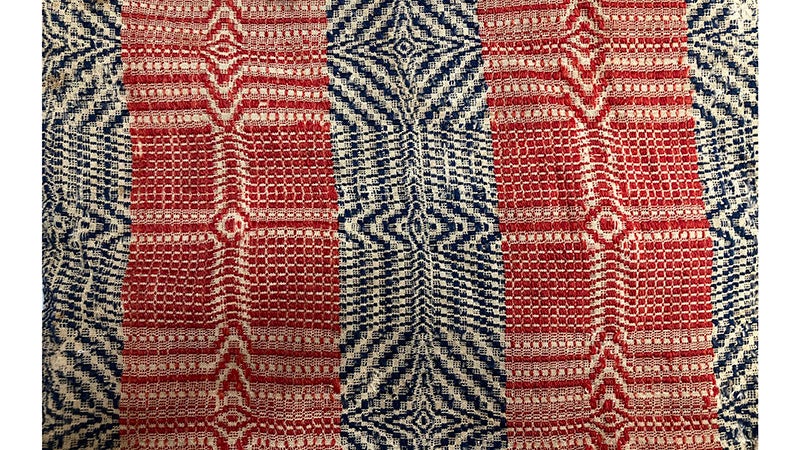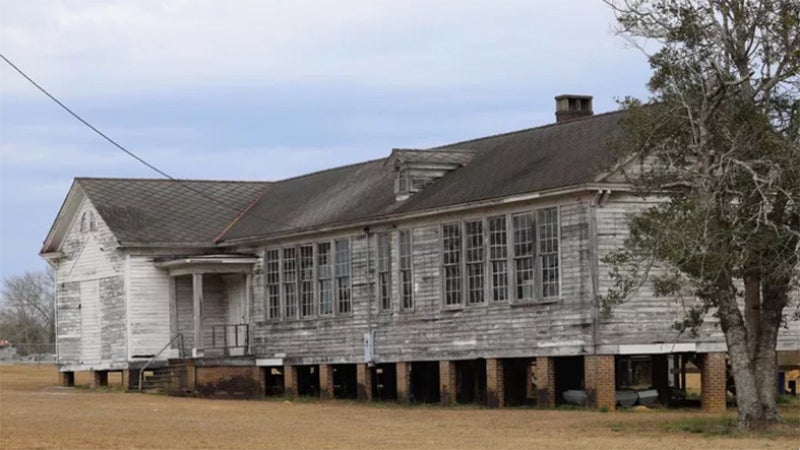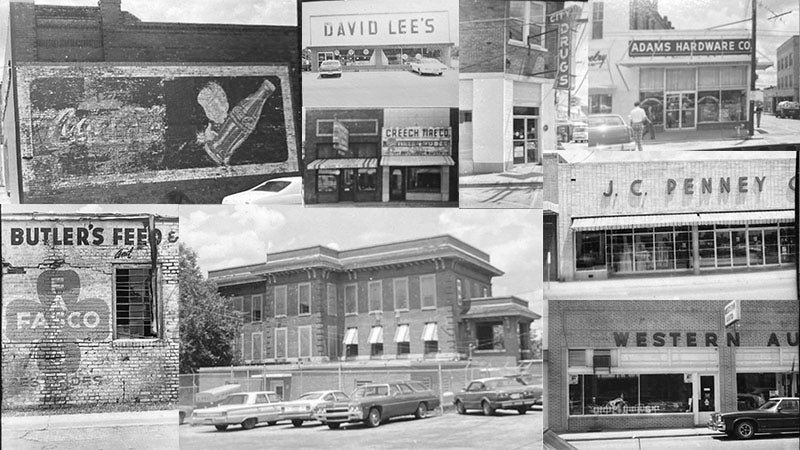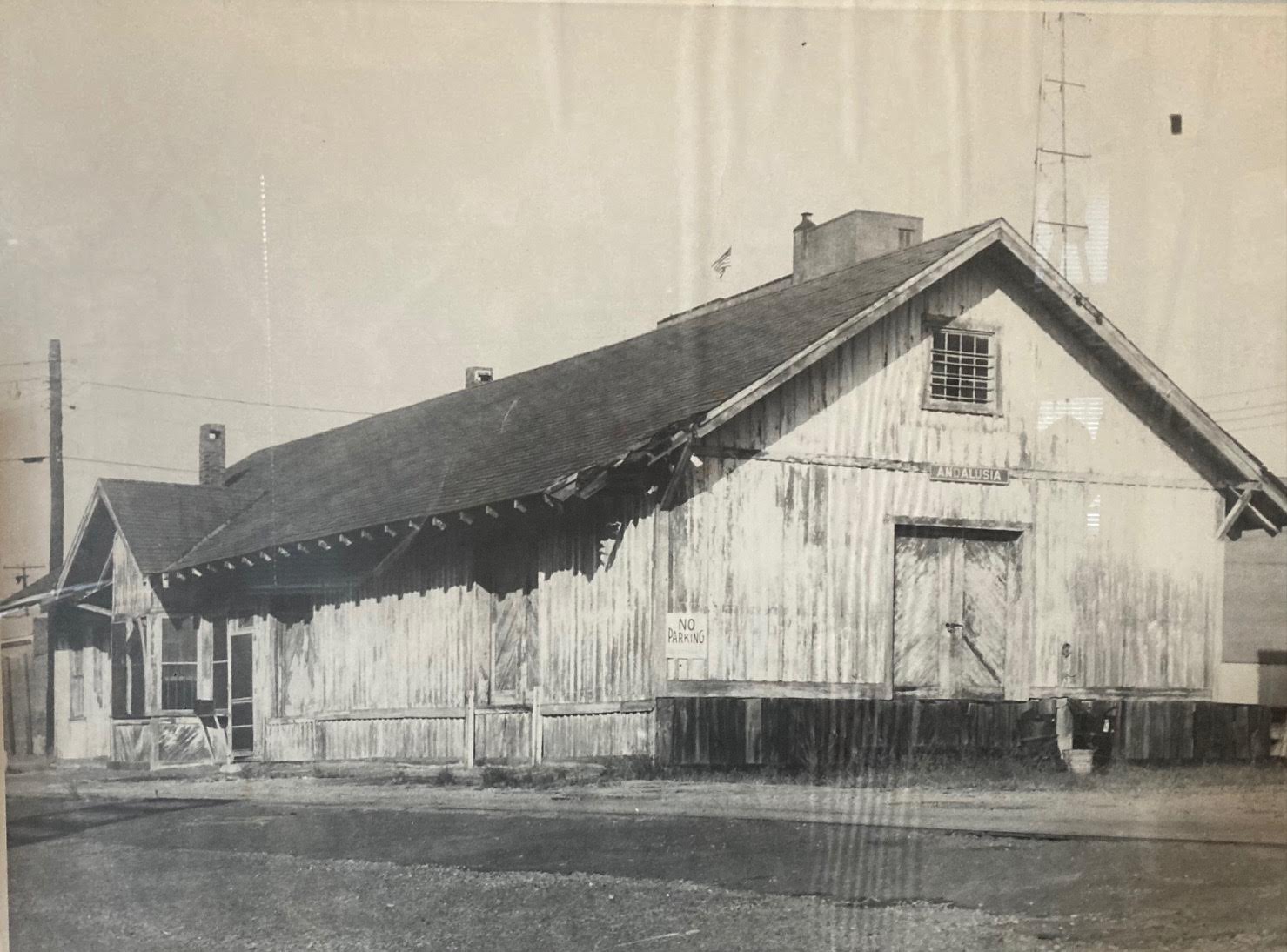Remember when we recited poems?
Published 1:16 am Saturday, July 16, 2016
“Pardon me, boys, is that the Chattanooga Choo-Choo?” This big band swing tune recorded by Glenn Miller and His Orchestra was the #1 hit song across the U. S. in December 1941. The song opens up with the band sounding like a train rolling out of the station complete with trumpets and trombones imitating a train whistle.
The train stories of days gone by are interesting and a significant part of American history. My great grandfather David Tucker from Decherd, Tennessee was a train conductor. He was in service with the Nashville to Chattanooga line for 57 years. When he retired in 1929 after a remarkable career, they gave him an engraved gold pocket watch. Gold pocket watches were as popular back in the days of suspenders as the women’s corsets. One of my grandmothers wore her corset even in the nursing home almost up until the day she died!
A young lad from Andalusia once traveled by train, the Central of Georgia, to visit his aunt and uncle in Columbus, Ga. It is remembered that once he arrived, he was covered in soot and ashes from holding his head out the train window most of the way!
I hear tell that teaching students cursive handwriting in the schools is making a comeback. A memento book of a relative was once given to me by a family member. The book belonged to a young lady who had grown up in Atlanta in one of the neighborhoods where homes had burned during the Great Fire of Atlanta. During that event, the Bennett family had thrown all of their silver and china out of the windows in hopes of saving some of their keepsakes and collectibles. One piece of the Haviland china still has a black soot smudge on it today. This little book dated 1883 contained perfectly beautiful penmanship of the person who had written quotes and poetry mostly. People don’t seem to be as interested in poetry as they once were back when students who were taught with the McGuffey Readers. The one-room schoolhouse students had to memorize and recite poetry routinely. In the River Falls Post Office historic structure now converted to a one-room schoolhouse on the grounds of the Three Notch Museum, there are some McGuffey Readers of each grade level for visitors to peruse.
My grandmother Brunson’s favorite poem was “Crossing the Bar” by Alfred Tennyson. My mother’s favorite was “(It Takes a Heap o’ Livin’ in a House to Make It) Home” by Edgar A. Guest. I guess my favorite is “Keep a-Goin’” by Frank Stanton. My dad liked “The House By the Side of the Road” by Sam Walter Foss because it reminded him of his father in his retirement years who often sat on his front porch there on Peachtree Street in Atlanta and spoke to all of the passers-by on the sidewalk. It was always a sheer pleasure to hear Mr. Joe Wingard read “Jest ‘Fore Christmas” by Eugene Field at programs he used to present for Christmas club meetings around town. Wingard, a poet himself and teacher of English at AHS for 36 years, in my estimation is the unofficial “Poet Laureate of Andalusia.”
Many family possessions are lost, scattered, and divided up along the way as heads of households pass away. To have a family Bible in one’s family is a real treasure. Many Bibles came on the covered wagons and tar wheel carts with the families who forded creeks and streams traveling from North Carolina migrating into Tennessee and Georgia and later into Alabama when the Alabama territory opened up. A record of births, marriages, and deaths was carefully penned in the middle sections of those large thick Bibles. A family Bible that came into my possession contained much family genealogy along with other items tucked between the pages, – a lock of hair, a pressed flower, a clipping of white satin, and a Civil War name badge, GRANT! Figure that one out!
My father was born in 1918 when his father was 59 years old. Daddy always made all of us children laugh when he referred to the bureau, the chifforobe, the settee, the graph-a-phone, and the Victrola. He was reared by parents who had grown up in the mid to late 1800’s! “Turn that graph-a-phone down,” he would instruct. “But Daddy,” we would reply, “that is the stereo!”
Quilts carefully designed and sewn were often bequeathed in wills by the mothers of the family, the quilt makers. Do you ever remember spending the night at your grandmother’s house in the winter time and being covered up with a heavy quilt? You were warm underneath, but you were breathing cold air if your head was out of the covers!
In addition to the family Bible of great grandfather Ezekial W. Bass of Tennessee, I have only one other possession of that pioneer family – a woven bed cover of great grandmother Susie Lawrence Bass. Because of its poor condition, I decided to cut several large squares out of it, frame those, place an engraved identification plate on the frames, and give those to family members and to the museum in Lebannon, Tennessee, the area where the family settled and lived in DeKalb and Wilson counties. Lebannon, by the way, is the headquarters for Cracker Barrel.
Families have donated items to the Three Notch Museum that are keepsakes and mementoes. One particular thing that comes to mind is a primitive farm table with two side benches. One long bench is high up for the children and the low bench is for the other family members. This table was used by a farm family in the Red Level area for many years. The granddaughter donated it to be displayed in and around the farming implements and country kitchen so school children could see first-hand how families used to live.
A February 26, 1922 full page article in The Birmingham News featured Andalusia – “Andalusia is a Wonderful Place To Live and To Make a Living,” the headlines read.
“Up to 1821, all the white settlers in Covington County were squatters. The lands were surveyed in the last two quarters of 1821 and the first quarter of 1822. It was not until 1823 that the results of the survey were platted and entered of record in the General Land Office at Washington. The chief surveyor was John Coffee who had his office at Florence. A federal land office was opened at Sparta in Conecuh County in December 1823….The population of the county as a whole increased very slowly prior to the advent of the railroad….The county was without transportation, except by means of wagon, to the railroads which penetrate the adjoining counties. The Conecuh River is navigable for light boats at certain seasons… But since then (the coming of the railroad, two railroad lines, the Louisville and Nashville and the Central of Georgia), it (Covington County) has woke up and Andalusia is now one of the wonder cities of Southeast Alabama.”
By 1922 the Andalusia Livestock Co. was shipping out hogs. J. A. Prestwood, Cleve Everidge, and A. C. Wilder were shipping cattle. Etheridge and Reilly, J. W. Shreve and Sons, and Hicks and Brawner were shipping produce and poultry to Florida and one firm sent a carload of eggs to Cuba. The Shreve farm which was on the “outskirts of Andalusia” (the Bellwood Subdivision location we know today and another farm near the old Andalusia Fair Grounds), grew acres and acres of sweet potatoes, mustard, English peas, lima beans, green onions, egg plants, squash, okra, beets, cucumbers, corn, Irish potatoes, cabbage, and bell peppers. These vegetables were shipped all over the South making the vegetable industry strong in Andalusia thanks to the coming of the rails around the turn of the 20th century in 1899 when the train line was extended from Searight into downtown Andalusia.
The Birmingham News reported, “There are about 20 (rail) cars of mules handled here during the good seasons. Only about three are on the market at the present.”
Well, this “Old Grey Mare, she ain’t what she used to be many long years ago!” But I do REMEMBER WHEN my mother used to read that little Golden Book to me as a child, “The Train to Timbuctoo” by Margaret Wise Brown. “Clackety, Clack, Clickety Click, Throw out the throttle and give it the gun. Whooooooooooooooooo!” Read to your children, young parents, and one day your child will REMEMBER WHEN.





